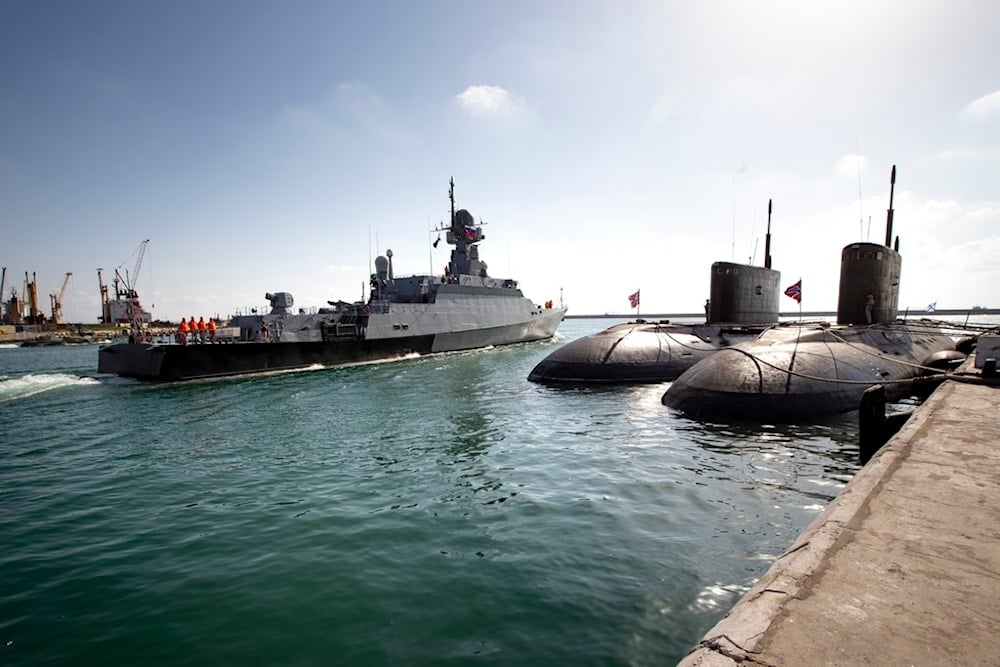Russia contacting Syrian regime, seeks to keep bases: Report
Russia is maintaining contact with the new regime forces in Syria as it aims to keep its military bases in the country.
-

The Russian missile ship, the Veliky Ustyug, sails from the Russian naval base in Tartus, Syria, in the eastern Mediterranean, on September 26, 2019. (AP)
Russia has established direct communication with the political committee of Hay'at Tahrir al-Sham (HTS), the group behind the recent insurgency that toppled former Syrian President Bashar al-Assad, Russian Deputy Foreign Minister Mikhail Bogdanov revealed on Thursday, according to the Interfax news agency.
Bogdanov described the contacts with HTS as "constructive." He stated that Moscow's aim was to ensure that HTS fulfills its commitments to maintain order, prevent any "excesses," and guarantee the safety of diplomats and foreign nationals.
The deputy foreign minister also underscored Russia's determination to retain its military presence in Syria. The Tartus naval base and the Khmeimim Air Base, near Latakia, remain pivotal to Moscow's efforts against international terrorism, he said.
"The bases are still there, at the request of the Syrians, with the aim of combating terrorists from the Islamic State. No other decisions have been made at this time," Bogdanov noted.
He emphasized that the fight against terrorism, including remnants of ISIS, is far from over. "This fight requires collective efforts, and in this context, our presence, particularly at the Khmeimim base, has played a critical role in combating international terrorism," he added.
Russia maintains dialogue with Middle Eastern states
"Assad's withdrawal from the process of fulfilling the duties of the head of state is his personal decision. The rest will be left without comments," Kremlin spokesperson Dmitry Peskov told RIA Novosti reporters when asked what role Russia played in al-Assad's departure from the post of head of the Syrian state and his arrival in Moscow.
Russia maintains an ongoing dialogue with all Middle Eastern countries, Peskov stated while addressing the status of military bases in Syria and Russia's regional influence.
When asked about whether the Kremlin sees a risk of losing influence in the Middle East amid the instability in Syria, he said "We will continue this dialogue, we have an intersection of interests with many countries, a coincidence of interests with a number of states in the region. We have very broad-based cooperation, both trade and economic, and other, and we intend to continue all these processes."
The official emphasized that now is the time for a thorough analysis of the situation in Syria, stressing that it is difficult to predict what will happen next.

 3 Min Read
3 Min Read








